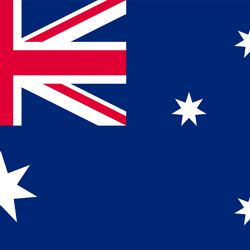In part one of our article about preparing for an overseas property purchase we explored getting your legal details in order, making the property is up to scratch and getting help from an English speaking lawyer or translator.
What do we have in store for part two? Keep reading to find out!
1. Work out the costs of a foreign mortgage
Adequately calculating all the costs involved is an essential aspect of any property purchase, but this can be more difficult when buying foreign property as there can be fees and charges you don’t anticipate. While you might be all set to buy the home of your dreams, make sure that you know what you should and shouldn’t be paying.
Few people can afford to buy a property outright, so securing a mortgage and calculating whether you can manage the repayments may be one of the first things you have to do. Don’t just take the first available offer from a seller or estate agent though. Shop around for the best mortgage to suit your needs, and get all paperwork professionally translated and checked by an independent lawyer to make sure there aren’t any special conditions hidden in the small print.
Going off one of our previous tips, having an English-speaking property lawyer or a translator during the process can be a great help if when navigating the fine details of a foreign mortgage deal.
Another mortgage-related cost to factor in is the exchange rate between pound sterling and the local currency. If you’ll be moving money from the UK every month to pay the cost of your foreign mortgage, the exchange rate you’re able to secure could make a big difference. A competitive exchange rate could help make meeting those mortgage payments more manageable.
2. Keep an eye on additional fees
As mentioned above, along with any mortgage related costs, there are extra fees that need to be worked into the overall price of a property purchase.
Immediate fees include the services of any experts that help you make the purchase, including the costs for surveyors or architects that inspect the property and bank transfer fees when moving money abroad.
Bank fees can differ greatly between institutions, but there are ways around being charged to make a currency transfer. Currency brokers can offer fee-free currency transfers and specialist services which can help you budget for your purchase more effectively. One such service is a ‘forward contract’, where you can lock in an exchange rate for up to a year, meaning you won’t lose out on your transfer as a result of any surprise market movements.
Removals are another fee to factor in – depending on the country, you might be able to get your possessions over by land, sea or air. By road can be cheap and quick depending on the distance travelled, while by air is typically expensive but fast. Shipping overseas is the slowest method, but usually means you don’t need to pay so much.
A final cost that might have to be paid is a connection fee for utilities, but this largely depends on what kind of property you are moving into.
3. Prepare for the unexpected
If you’re moving to your new property for retirement purposes, it might be a good idea to write up a will in your new country. While not the cheeriest thought, this ensures that the property is left to the beneficiaries you want and that you aren’t caught out by differences in international inheritance law.
Another tip is to know your rights in case something goes wrong. If you do find yourself in an unexpectedly bad situation, seek legal advice to make sure that you aren’t being duped, or consult experts at the British embassy.
We hope you find these tips useful when making a foreign property purchase. Keep checking the Everything Overseas blog for all the latest property news and information.








